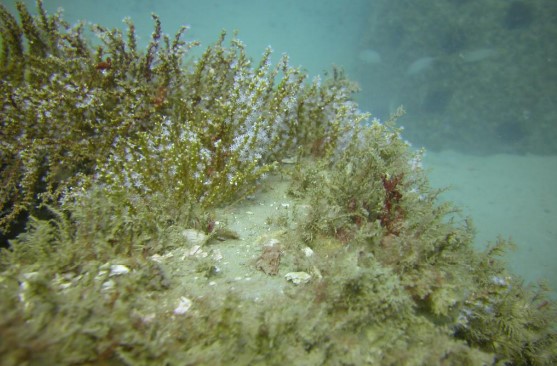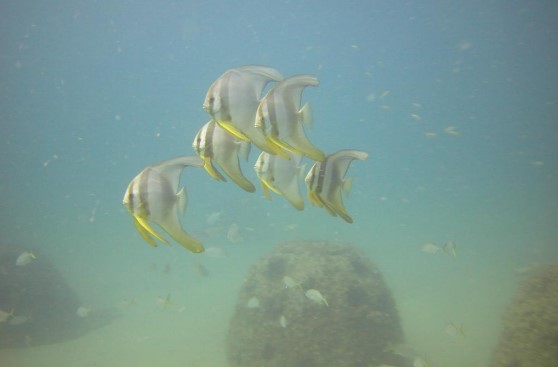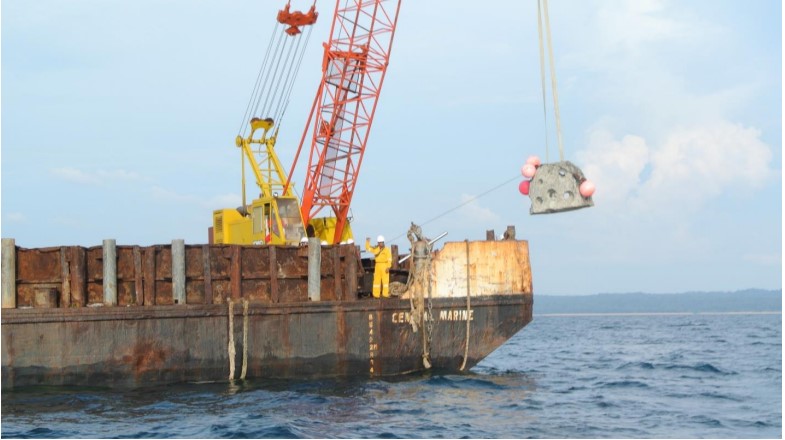Sarawak’s innovative Reef Ball Project is making waves both locally and internationally, highlighting the state’s dedication to preserving marine ecosystems while also bolstering its economy. This ambitious project, now in its second phase, is transforming Sarawak’s coastal waters into a thriving habitat for marine life, setting a benchmark for marine conservation efforts worldwide.
The Reef Ball Project, launched under the guidance of Sarawak’s government, aims to protect the state’s marine biodiversity by deploying specially designed artificial reef structures along its coastline. These reef balls are made from marine-friendly concrete that mimics the natural limestone of coral reefs, providing a stable, toxin-free habitat for a variety of marine organisms. The structures are designed to last for centuries, ensuring long-term benefits for the ecosystem.
The impact of these reef balls on Sarawak’s marine environment has been profound. Over 329,000 square meters of new surfaces for marine life have been created, offering a new lease on life for species such as corals, algae, fish, and other marine organisms. This project not only enhances biodiversity but also contributes to the sustainability of local fisheries. The increased availability of habitats for marine life translates into a higher yield of fisheries resources, with each reef ball potentially adding 100kg to 400kg of fish annually.

Sarawak’s commitment to this initiative has garnered international recognition. In 2023, the state was awarded by the Reef Ball Foundation of the USA for creating the world’s longest artificial barrier reef. Spanning 746km, this barrier stretches from Tanjung Datu to Lawas, marking a significant achievement in the realm of marine conservation. This accomplishment underscores Sarawak’s proactive approach to addressing global environmental challenges while simultaneously boosting its local economy.
The economic implications of the Reef Ball Project are as significant as its environmental impact. By improving fisheries resources, the project supports the livelihoods of local fishermen, ensuring a sustainable income for communities that depend on the sea. Moreover, the artificial reefs are poised to become a major attraction for ecotourism. The vibrant marine ecosystems that these reefs support are likely to draw divers, researchers, and tourists, providing an additional revenue stream for the state.
Johnny Pang, the assemblyman for Tanjong Batu, has emphasized the broader benefits of the project. He noted that the project not only conserves marine biodiversity but also aligns with Sarawak’s goals of fostering economic growth through sustainable means. Pang also highlighted the importance of community involvement, urging local residents to support and participate in the project’s ongoing efforts. The second phase of the project, which runs from 2023 to 2025, has been allocated RM30 million, reflecting the government’s commitment to expanding and sustaining this initiative.
The Reef Ball Project is a cornerstone of Sarawak’s broader strategy to enhance its blue economy a concept that emphasizes the sustainable use of ocean resources for economic growth, improved livelihood, and job, while preserving the health of ocean ecosystems. This initiative exemplifies how environmental conservation can go hand in hand with economic development, creating a win win senario for both nature and people.

As Sarawak continues to lead in marine conservation, the Reef Ball Project serves as an inspiring example for other regions facing similar challenges. The success of this project illustrates that with innovation, commitment, and community involvement, it is possible to achieve significant environmental and economic gains. By investing in the health of its marine ecosystems, Sarawak is not only safeguarding its natural heritage but also paving the way for a more sustainable and prosperous future.
Reference
Jane Moh on. (2024, August 11). Sarawak reef ball project signifies commitment to maintaining marine eco-balance. https://www.theborneopost.com/2024/08/11/sarawak-reef-ball-project-signifies-commitment-to-maintaining-marine-eco-balance/
Marilyn Ten on. (2023, July 10). Sarawak Reef Ball Project gets international recognition. https://www.theborneopost.com/2023/07/10/sarawak-reef-ball-project/
Nurul Shima Shahminon. (2024, August 10). Reef Ball Project Holds Out Hope For Biodiversity | New Sarawak Tribune. New Sarawak Tribune. https://www.newsarawaktribune.com.my/reef-ball-project-holds-out-hope-for-biodiversity/
Philip Wong on . (2024, August 4). Sarawak now known for preserving marine biodiversity due to reef ball project. https://www.theborneopost.com/2024/08/04/sarawak-now-known-for-preserving-marine-biodiversity-due-to-reef-ball-project/
Sarawak Reef Ball Working Group. (n.d.). Www.reefball.org. https://www.reefball.org/projects/malaysia/sarawak.htm






